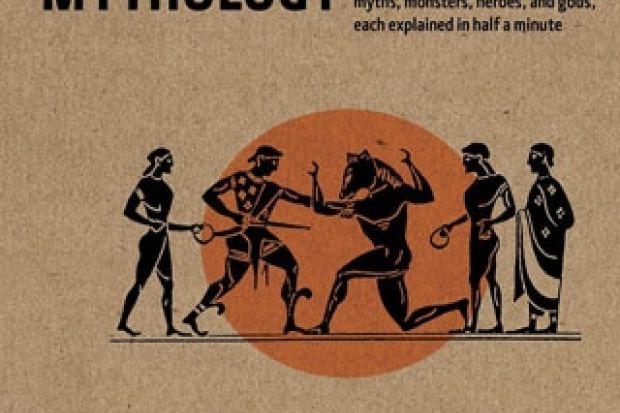Roderick Main, professor in the Centre for Psycho-analytic Studies, University of Essex, is reading 30-Second Mythology (Ivy Press, 2014), edited by Robert Segal. “Elegant, evocatively illustrated and richer in content than its title might suggest, this pithy yet authoritative book presents the most important tales of the gods, heroes and monsters of Graeco-Roman mythology. A wonderful text for re-attuning oneself to the pervasive artistic, literary and psychological significance of these myths within Western culture.”

June Purvis, professor of women’s and gender history, University of Portsmouth, is reading Lucy Bland’s Modern Women on Trial: Sexual Transgression in the Age of the Flapper (Manchester University Press, 2013). “Bland lucidly explores sensational trials of several women during the period 1918-24, all of which were presented by the press as ‘morality’ tales involving drugs, murder, adultery, miscegenation and sexual perversion. Such a representation, it is argued, was a symptom of anxieties about the ‘modern’ flapper who challenged the gender restrictions of the pre-war world. A read with contemporary relevance.”

Sara Read, lecturer in English, Loughborough University, is reading Alun Withey’s Physick and the Family: Health, Medicine and Care in Wales, 1600-1750 (Manchester University Press, 2013). “This comprehensive study adds a much-needed piece to the jigsaw in terms of healthcare in the early modern period. Withey describes how Wales had access to ancient medical texts in Welsh editions from the 9th century, in which translations were mingled with anecdotal evidence. Other areas explored include the effect of the small clusters of population in remote communities.”

Ruth Richardson, honorary professor in medicine and the humanities, Hong Kong University, is reading Billy G. Smith’s Ship of Death: A Voyage that changed the Atlantic World (Yale University Press, 2013). “I am curled up with this extraordinary new book about an anti-slavery initiative of the 1790s, which instead of ending slavery ended the lives of thousands of people on both sides of the Atlantic by bringing yellow fever from Africa to the Americas. Fine original scholarship by a top history sleuth – easy to read, eye-opening, heart-rending.”

Peter J. Smith, reader in Renaissance literature, Nottingham Trent University, has just finished Hunter S. Thompson’s The Rum Diary (Simon & Schuster, 1998). “Written at the age of 22 and unpublished for four decades, this is a semi-autobiographical account of a struggling alcoholic journalist who travels to Puerto Rico to take up a job on the financially precarious local rag. Graham Greene it ain’t, but the oppressive Caribbean atmosphere is evocative of the character’s drunken stumbling after intellectual and emotional fulfilment: ‘I felt that if I went just a little faster I might overtake that bright and fleeting thing that was always just ahead.’ ”

